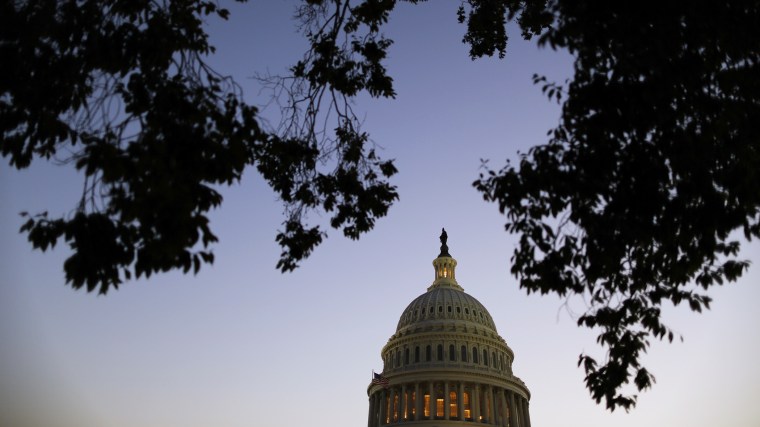Following up on a report from several weeks ago, one of the many advantages to being in the congressional majority leadership is near-total control over the agenda. In practical terms, House leaders can veto every bill, whether it enjoys majority support or not, simply by refusing to bring it to the floor for a vote.
In just about every instance, the will of the House majority is secondary to the will of the House majority leadership.
But about once in a generation, there's an exception to the rule.
The House acted with rare bipartisanship on Tuesday to approve legislation that would reopen the federal Export-Import Bank, after a debate that underscored the split between the party’s traditional pro-business members and ascendant free-market conservatives who are suspicious of big corporations.
House GOP leaders strongly opposed the Export-Import Bank -- sometimes called the "Ex-Im" -- and refused to allow lawmakers to even consider the idea of keeping the institution in place, but rank-and-file Republicans joined with Democrats on something called a "discharge petition."
The result was a surprisingly one-sided defeat, not only for the House GOP leadership, but also for the Koch brothers' political operation.
To briefly recap, if a majority of the House wants to pass a bill that the majority leadership refuses to consider, the majority can get together, circumvent chamber leaders, and force a bill onto the floor by signing a discharge petition. If they get 218 signatures, their legislation heads to the floor for a vote whether the House leadership likes it or not.
But this almost never happens. How rare is it? According to a report from the Congressional Research Service, in the last 84 years, literally only two bills have become law by way of discharge petitions. There's routine talk about the idea, but the efforts nearly always fizzle -- party leaders have made it clear to members that signing a discharge petition is seen as an ugly act of betrayal that the leadership will not appreciate, so the tool is very rarely used.
But in the case of Ex-Im Bank, members did it anyway. Indeed, it wasn't close: yesterday's vote was 313 to 118, with most Republicans and most Democrats voting to restore the agency that loans money to foreign entities to buy American-made products.
And while it may not seem too surprising that House GOP leaders were ignored, the chamber also thumbed its nose at the Kochs' political operation. Less than a month ago, when the discharge-petition process began, Americans for Prosperity CEO Luke Hilgemann declared, “We don’t take this casually. We’ll be watching how members vote on this, and there absolutely will be consequences.”
Oddly enough, as of yesterday, most House Republicans are willing to take the risk.
The bill now heads to the Senate, where it meets an uncertain fate. The New York Times reported, "While the Senate majority leader, Mitch McConnell, Republican of Kentucky, opposes the bank bill, the bipartisan House vote is expected to strengthen the hand of the bank’s proponents in negotiations over the transportation bill’s provisions."
